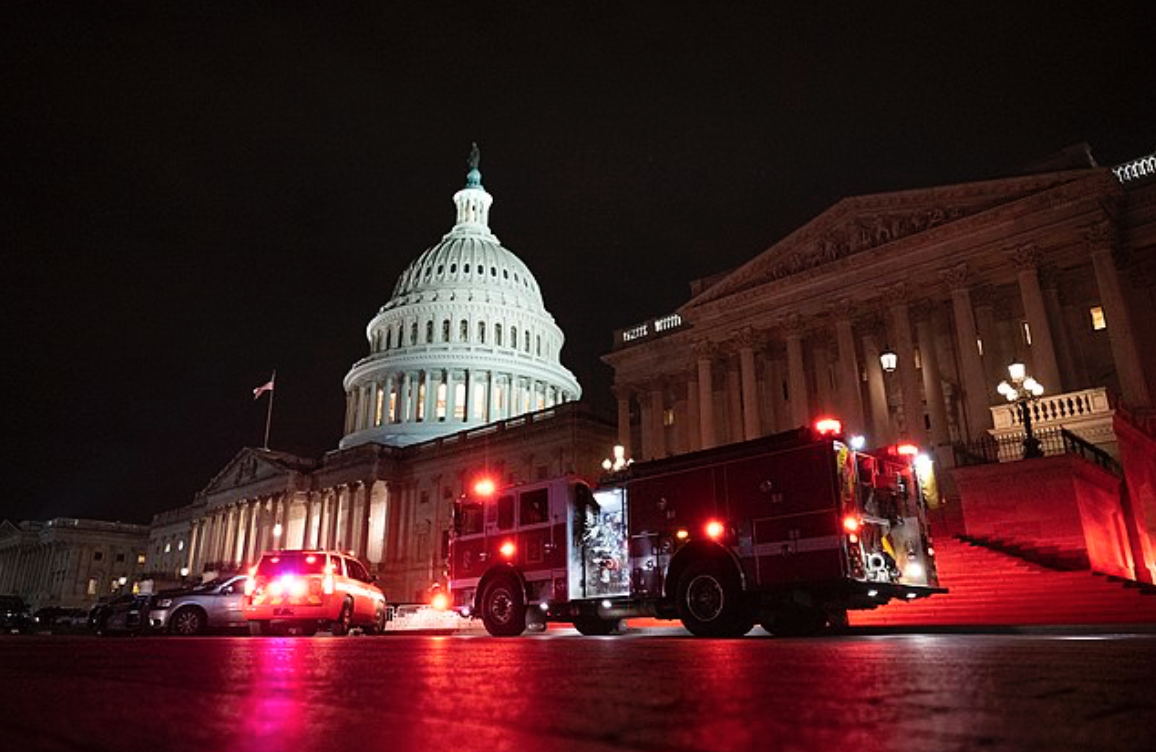Opinion: A Message for the House's Jan. 6th Committee - Secret Lists are Not the Answer
By Gadeir Abbas
There’s a certain routine in the wake of attacks on our country. We mourn the dead. We lower the flags. We call for the federal government to review what went wrong and take action to prevent future tragedies. And inevitably, congressional voices on both the left and the right call on our government to go too far in the exercise of its power.
This pattern is poised to repeat itself as the House of Representatives convenes a committee to investigate the January 6 siege of the Capitol.
Over the past twenty years, one of the most consistent examples of our nation's tendency to overreach in times of crisis is the recurring demand to expand the federal government’s terrorist watchlist—a post-9/11 blacklist more than one million names long. For years, the FBI has used the list against countless innocent Muslims who have not been charged, arrested, or convicted of any crime, causing them to be searched, detained, and interrogated at land borders and at airports, denying listed Muslims permits and licenses they need for their jobs, and even preventing people who end up on this secret list from traveling by air. It is a profound civil rights horror our country has never reckoned with.
Unfortunately for all of us, the response to the insurrection at the Capitol Building has thus far followed the familiar script. Within days, Rep. Bennie Thompson—Chairman of the Committee on Homeland Security—urged the FBI to add the rioters to the No Fly List. Others have followed his lead in the months since then, including Senate Majority Leader Chuck Schumer.
These calls to expand secret lists are a predictable refrain we are likely to hear again from lawmakers as their committee begins its work. For more than a decade, in response to national shocks of all kinds, political leaders have offered a traumatized public more and bigger secret lists as a kind of placebo stand-in for effective action.
When the so-called Underwear Bomber attempted to detonate a device while flying to Detroit on Christmas day in 2009, the federal government dramatically increased the number of people on the watchlist.
In 2011, after US special forces raided Bin Laden’s compound and found documents about potential attacks against rail service, Senator Chuck Schumer proposed preventing some people on the watchlist from boarding Amtrak trains.
In 2015, when a couple massacred 14 people in San Bernardino, congressional democrats introduced a bill to prevent people on the No Fly List from buying guns. This idea was resurrected a year later, after the Pulse Nightclub shooting left 49 dead, when lawmakers staged a dramatic sit-in on the House floor demanding a vote on this "no fly, no buy" bill.
Senators made a similar and bipartisan proposal in 2018 after a shooter killed 14 at Stoneman Douglas High School.
Be it a bombing, a school shooting, or an insurrection at the Capitol building, in the minds of some, the solution is always the same: a bigger, broader watchlist. Now that the House of Representatives has approved a select committee to investigate the January 6th insurrection and provide recommendations for how to protect our nation in the future, you can expect one of the recommendations to be a bigger, more invasive watchlist.
But these proposals overlook what almost two decades of the watchlist have taught us: the federal government’s watchlist is a boondoggle. Not a single person who has committed a violent act of terrorism inside the United States was on the watchlist when they committed their crime. It’s been perfect in this regard. During the watchlist’s almost 20-year existence, it has failed to target 100 percent of the people it exists to protect us from.
At the same time, the human wreckage wrought by the watchlist is well-known to its almost-exclusively Muslim victims. Families are separated, careers are ruined, and a powerful social stigma attaches to those listed that isolates listees from their community. If this secret list grows or finds a new mission targeting white supremacists, it is going to be Muslims that continue to suffer the most.
And the watchlst may be on its last legs. In 2014, a federal judge described how the No Fly List “transforms a person into a second class citizen, or worse.” And last year, this same judge declared another secret list illegal, explaining how it was “easy to imagine completely innocent conduct serving as the starting point for a string of subjective, speculative inferences that result in a person’s inclusion.” Political leaders should not give the watchlist new life as courts across the country push back against it.
The desire to punish the insurrectionists who invaded the Capitol building is natural. These people deserve our scorn and the criminal charges that prosecutors have imposed over the past seven months.
But our response to the lawlessness of the insurrectionists should be lawful. Society’s judgment of their conduct should be reached transparently in a court rather than covertly by the anonymous government officials who oversee the watchlist and administer its secret laws. Let’s be principled here, for ourselves and for those we despise, and demand that there be no more secret lists—not for the hundreds of thousands of innocent Muslims on those lists now nor for the insurrectionists many want targeted instead.
Gadeir Abbas is a board member and former president of the National Association of Muslim Lawyers. He serves as the senior litigation attorney with the Council on American-Islamic Relations, the nation's largest Muslim civil rights and advocacy organization.
Any opinions expressed in articles published by The Muslim Legal Journal represent only the views of each writer. Such opinions are not meant to represent the views of the writer's employer or the National Association of Muslim Lawyers (NAML).

